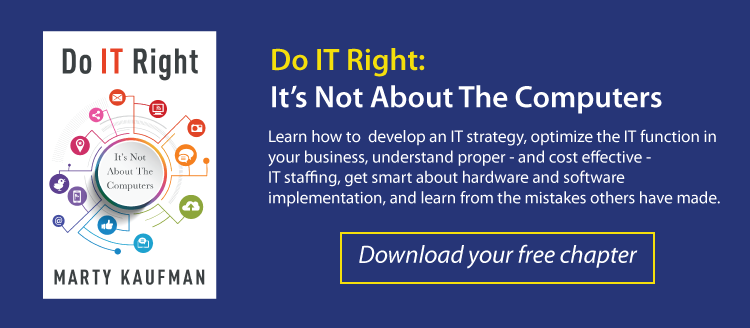Watch out one-time software purchases, you’re old news. While the now less-mysterious Cloud gains popularity in the business world, so does the booming “as-a-service” model.
Honestly, the IT world is full of acronyms. People are talking XaaS this or that, and many of us are left scratching our heads, X-what? This particular acronym is the name of the now famous Internet-delivered service. This model is strictly internet-based, as opposed to local or on-site services.
Everything on the Cloud is XaaS. You have been doing this longer than you think. When was the last time you bought a software disc? Almost all, if not all, of our software, is downloaded and paid for as a subscription.
The need for Internet, Wi-Fi, and/or data runs our lives. Lucky enough for us, the Internet is almost everywhere and sometimes even free. Most of these services are on a per-month, per-user, per-login, or per-whatever you need subscription model.
What is XaaS?
The X stands for “anything” or “everything.” Consider it an umbrella term that includes the more popular acronyms SaaS (Software-as-a-Service) like Office 365 or PaaS (Platform-as-a-Service), which includes Windows Azure and Google App Engine.
First, let’s get the lingo down. Some people say each letter; others sound it out. XaaS is often pronounced “zass.” In a nutshell, the need to group cloud computing services under one term created XaaS.
Benefits of the Era of XaaS
Welcome to the world of tailored computing environments. As a small to mid-sized business, you are probably already using some XaaS applications. There is a chance your accounting software and email applications are all Software-as-a-Service. While notably, success varies from business to business, key benefits include:
Flexibility to scale – tailor your services to exactly what you need. When business is lean, you can easily cut back, but when business is booming, you can add things quickly and seamlessly.
Convenience – gone are the days of purchasing and maintaining equipment. Forget cooling your server or any other equipment you might need to house it. Part of your user fees goes towards maintaining the product your XaaS provider offers.
Accessibility – access to anything you may need from anywhere. Small businesses are no longer nailed down to their office. Access your drives, files, and programs from any device with internet access.
Bonus: Cheaper - the Cloud doesn’t always mean cheaper, but in many cases, because of its scalability, it can create a savings benefit.
XaaS and Managed IT Service Providers
There is a myth that using XaaS replaces your IT department -- don’t fall for it. While XaaS will set up their product and make sure they run, they won’t maintain it on your side.
Consider this scenario: you purchase an email Software-as-a-Service (SaaS) application for your business. Everything is running smoothly, but one day you stop being able to send internal emails. You call your SaaS provider and explain the problem. They run diagnostics on your application, and it comes back clean, but you still can’t send internal emails.
Your managed IT service provider (MSP) will troubleshoot your company’s software issues. Many of these issues fall outside of the software provider’s scope of duties. Your MSP determines what is causing the problem and resolves it internally or with your XaaS provider.
Consider XaaS like a trip to Baskin-Robbins 31 Flavors -- there are a lot of flavors and even more customization options. As time goes on, don’t be surprised to see more traditional services offering “as-a-service” options. You might want to consider a roadmap that incorporates XaaS before diving right in. Speak with your managed IT provider to find the right XaaS providers for your business.




